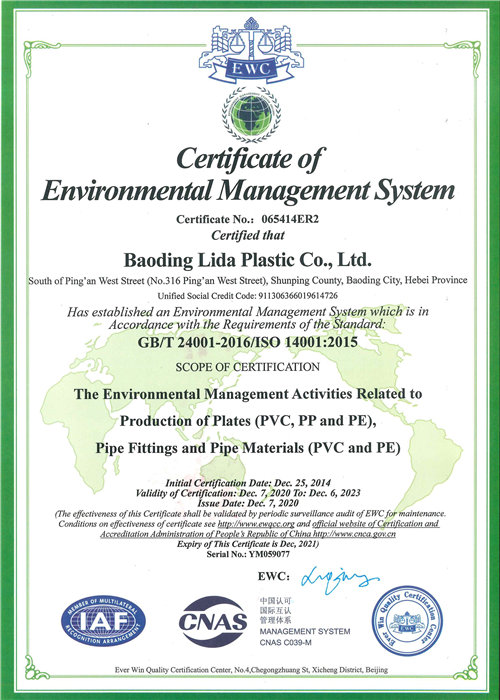Aug . 05, 2024 02:18 Back to list
Exploring the Benefits and Applications of Polypropylene Panels in Modern Construction and Design
The Versatility and Applications of Polypropylene Panels
Polypropylene panels have emerged as a significant material in various industries due to their unique properties and advantages. Polypropylene, a thermoplastic polymer, is known for its durability, lightweight nature, chemical resistance, and versatility. These characteristics make polypropylene panels an ideal choice in numerous applications, ranging from construction and packaging to automotive and medical uses.
One of the most notable features of polypropylene panels is their lightweight quality. This attribute not only reduces transportation costs but also makes them easier to handle and install. For example, in the construction industry, contractors often prefer polypropylene panels for wall and ceiling coverings due to their ease of installation and minimal structural support requirements. The panels can be cut to size and customized to fit various designs, allowing for a high degree of flexibility in architectural applications.
Another significant advantage of polypropylene panels is their resistance to chemical corrosion. Unlike traditional materials, such as wood or metal, polypropylene does not degrade when exposed to harsh chemicals, making it ideal for environments that require sanitation and safety. This quality is particularly beneficial in the food and beverage industry, where polypropylene panels are often used in processing plants and packaging applications, ensuring that products remain uncontaminated.
Moreover, polypropylene panels are inherently moisture-resistant and do not support mold growth, making them suitable for humid and wet environments
. In areas where traditional materials may warp or deteriorate over time, polypropylene panels maintain their structural integrity and appearance. This makes them a popular choice for applications in laboratories, hospitals, and other facilities requiring high hygiene standards.polypropylene panel

In addition to their practicality, polypropylene panels are also recognized for their aesthetic appeal. Available in various colors and finishes, these panels can be designed to suit any environment. This versatility allows architects and designers to create visually appealing spaces without compromising on functionality. For instance, retail stores may use decorative polypropylene panels to enhance their interior design while ensuring durability and ease of maintenance.
The sustainability aspect of polypropylene panels is another reason for their growing popularity. As awareness of environmental issues has increased, many manufacturers have started producing panels using recycled polypropylene. This not only reduces the reliance on virgin materials but also lowers overall production waste. Furthermore, polypropylene panels can be recycled at the end of their life cycle, contributing to a circular economy and minimizing environmental impact.
In the automotive industry, polypropylene panels are used extensively for interior components due to their lightweight nature and durability. By reducing the overall weight of vehicles, manufacturers can improve fuel efficiency and reduce emissions. Moreover, the panels can be molded into various shapes and sizes, enabling innovative designs that enhance both functionality and aesthetics.
Despite the numerous advantages, it is important to note that polypropylene panels do have some limitations. While they are resistant to many chemicals, prolonged exposure to UV light can lead to degradation over time. Therefore, when used outdoors, it may be necessary to apply UV-resistant coatings or select panels specifically designed for exterior applications.
In conclusion, polypropylene panels represent a versatile and valuable material in a wide range of industries. Their lightweight, chemical-resistant, moisture-resistant properties, along with aesthetic flexibility and sustainability aspects, make them an increasingly popular choice for various applications. As technology advances and demand for environmentally friendly materials rises, the use of polypropylene panels is likely to expand even further, solidifying their place in the modern materials landscape. Whether in construction, automotive, or consumer products, polypropylene panels offer a practical solution for the challenges of today's industries.
-
High-Quality PPR Pipes and Fittings Durable ERA PPR & PVC PPR Solutions
NewsJul.08,2025
-
Black HDPE Cutting Board - Durable, Non-Porous & Food Safe HDPE Plastic Cutting Board
NewsJul.08,2025
-
High-Quality CPVC Panel Durable HDPE & PVC Panels Supplier
NewsJul.08,2025
-
Double PE Welding Rod Supplier - High Strength, Durable & Versatile Welding Solutions
NewsJul.07,2025
-
High-Quality PVC-O Pipe Supplier Durable 75mm PVC Pipe & Connections Leading PVC Pipe Company
NewsJul.07,2025
-
HDPE Drainage Pipe Supplier – Durable & Corrosion-Resistant Solutions
NewsJul.06,2025

